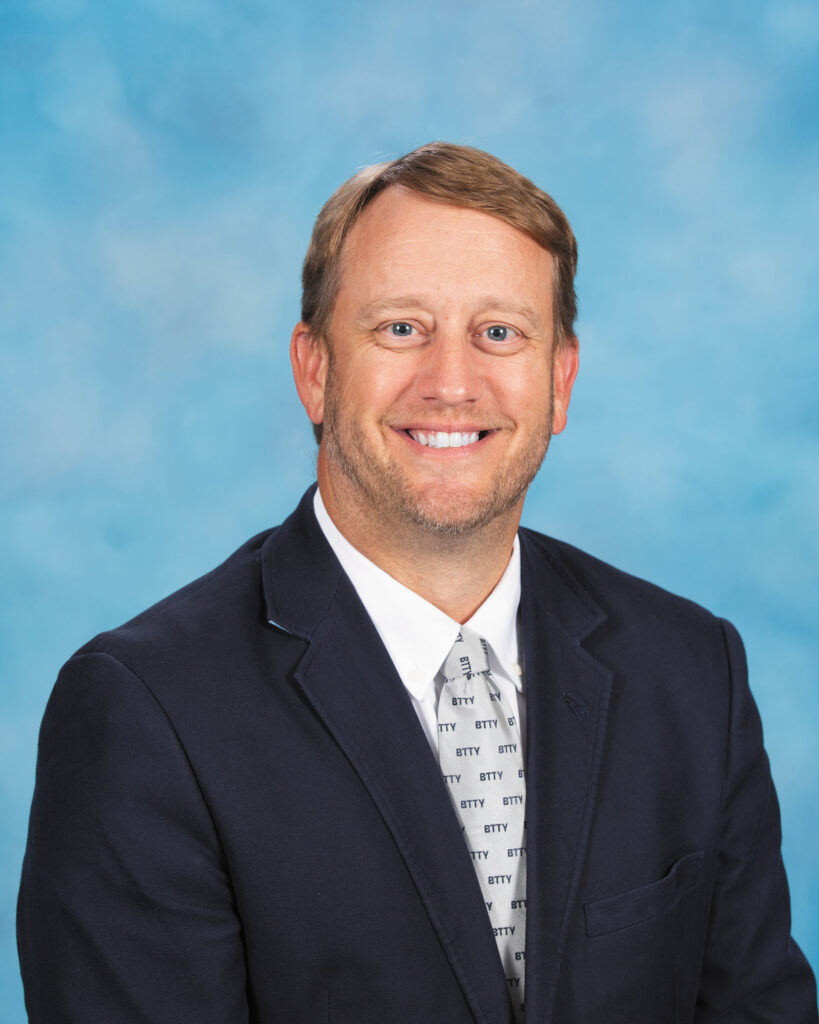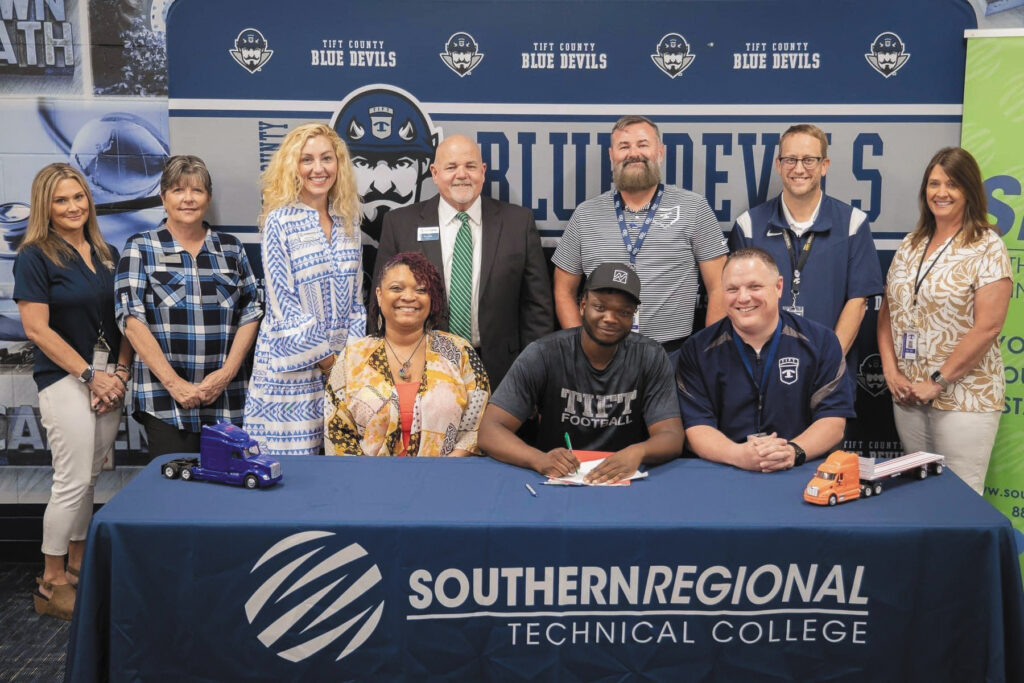Beyond a Pathway to College

Every year, I tell my students at Tift County High School in Tifton, GA, that not everyone is going to go to college, and that is OK. About 80% of my graduating seniors will enroll in some type of higher education, but not all of them will complete a degree program.
It seems like many high school principals tell their students they all should go to college, and, as a result, they focus primarily on that pathway. But that doesn’t serve the large percentage of students who don’t attend college. I strive to make certain they have other good options.
Career and technical education—or career, technical, and agriculture education (CTAE), as we call it in Georgia—offers a multitude of options for students to explore. From health care and business to agriculture and consumer science, students can find an avenue to pursue.
In addition to our CTAE programs, we have expanded the number of students who participate in our work-based learning program. Since 2020, that number has grown from 32 to over 200 students. Our community reaps the benefits from this program as our students seek employment, receive a paycheck, and earn high school credit. From the peanut warehouse to the boutique on Main Street, our students can be seen hard at work. Some have gone on to find professional careers in health care and business based on their experience in the work-based learning program.
Eli’s Success Story

One of my favorite success stories is about a former student named Eli. He had no interest in long college attendance or joining the military. He simply wanted to drive a semi-trailer truck. Working with our local technical college (Southern Regional Technical College), we created a program where Eli was able to earn dual enrollment credits, while pursuing coursework to earn a Commercial Driver’s License (CDL). He finished his CDL courses in March, graduated from high school in May, and became the first high school student in Georgia to earn his CDL. He will have to wait until he is 21 to drive long routes across state lines, but he has already achieved his dream of being a professional truck driver. Eli did what we hope all our students will do—find their passion.
To help them, we use the Burger King approach. I realize that sounds a little strange, but we want our students to “have it their way.” We listen to what they want and give them what they need to be successful.
One of the main ways we do that is through “T Time,” which is short for “Tift,” the name of our school. With 2,300 students, it is a challenge to give each of them lots of individual attention. T Time enables us to meet students in smaller groups (12 to 15 in a group). The groups meet once a month with one of our staff members. From the front office secretary to assistant principals, everyone leads a group; I even have my own. We talk about social and emotional issues because those are so important, and we discuss real-life topics like future plans and resume writing tips. If a student like Eli mentions that they want to drive a truck, or want to join the military, or want to become a graphic designer, we can connect them to the appropriate resources to help them achieve their dreams.
I really believe we need to give students a variety of experiences in high school. Sometimes these experiences include failing a course. It is better for students to experience those obstacles in high school since we have a support system to build them up and help them readjust. Such learning experiences will serve them well as adults.
Exploring New Partnerships
I am excited about a couple of new programs at our school that connect our students to securing solid occupations for their future. One is a partnership with our local community college to bring a welding program into our school. Students can study welding on our campus and earn a welding certificate. This is a very lucrative field right now: If a student shows talent in this area and does not mind traveling, they can earn six figures in an entry-level job.

Another program we are in the process of implementing would help prepare and recruit future teachers. We have a teacher shortage in Georgia, and this is one approach to increasing the limited supply. This program will allow our students to enroll in CTAE education courses on our campus, participate in real-life classroom observations in elementary and middle schools, and eventually enroll in college to complete their education and earn their teaching certification.
These programs and the Burger King mindset pushed our graduating class of 2023 to a 95% graduation rate. That’s the highest in the history of Tift County High School. One thing I attribute that to is asking the right questions. We really want students to think about what they want to do during school that will help them after graduation. We make sure our students take classes that pique their interest. Maybe they want to pursue work-based learning because they don’t want to sit in a class they don’t like and would rather be out learning and earning money to help their family.
Everyone talks about how we need to think outside the box but it’s bigger than that. I like to say we need to think outside the universe. Our students today are so different than when I was in high school, and the small group approach is one way to help the kids find that passion I talked about. If we can have regular conversations and build relationships, we have a much better chance of helping more of them succeed. We have a motto here: Better Today Than Yesterday, or #BTTY. Everyone is different, but we want them all to grow as students and people.
Chad Stone is the principal of Tift High School in Tifton, GA, and the 2023 Georgia Principal of the Year.
